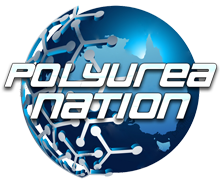Polyurea, which is often confused with polystyrene, is a man-made material comprising of fine polyurethane and resin-based liquid or solution. Polyurea is chiefly utilized in the foam industry for low-pressure plastic flows, coatings, lubricants, thermoset polymers, and water cures. It has emerged as an alternative to polystyrene because of its low cost and superior properties. Polyureas are generally available as liquid polyurea or as a powder. Polyurea, being thermoplastic, is able to stretch to very large dimensions.

Polyurea has a wide range of advantages over other man-made materials such as polystyrene, flexible polyurethane and urethane. Polyurea is extensively used in refrigeration systems and industrial, plumbing, and heating applications for its ability to maintain constant room temperature even in extreme temperatures. Polyurea is also widely used as an adhesive in arts and crafts, automobile body repairs, and food service equipment. Additionally, polyurea is utilized in the automotive and marine industries for components, seals, wheels, and tires, as well as in aerospace and defense industries for cushions, coatings, and components. These polyurea components and sealants are able to resist moisture, flame, chemicals, and extreme temperatures.
As compared to urethane and polystyrene, polyurea has a longer life span and superior physical properties. For instance, polyurea‘s high strength-to-weight ratio (stiffness), thickness, and elasticity, make it highly effective in handling high-impact conditions. Polyurea‘s high level of resistance to ultraviolet light (UV), flame, and chemicals makes it ideal for use in many of today’s most demanding applications. Its rigid surface preparation provides protection against abrasion, chipping, and cracking. Its unique physical properties, including high tensile strength, elasticity, chemical resistance, and high temperature resistance make polyurea an excellent choice for flooring applications, including industrial floors, interiors, and marine applications.
Because of polyurea‘s superior physical and chemical properties, it requires less material to achieve the same degree of hardness or stiffness. For example, when coats are applied directly to steel or concrete, a grainy surface develops due to abrasion. However, when polyurea coating is applied with a rotary or rotating blade, the grainy surface becomes polished and locked. This provides additional protection against abrasion, wear and tear, and corrosion.
Additional benefits of polyurea coating include its durability, high tensile strength, and high temperature resistance. The polyurea coating is so strong and durable that it does not require any additives to maintain its strength or improve its tensile strength. Polyureas used to build large structures such as buildings or bridges have been known to stand up against major impacts without splintering. The coating can also withstand extreme heat without being damaged.
Because of these qualities, polyurea is commonly used in industrial floor coatings. It is able to resist impact, retains its original color, and provides effective insulation against heat, cold, and moisture. This low-resistance coating also resists the growth and spread of mold, mildew, and bacteria. Its unique physical and chemical properties allow it to provide protection against abrasion, chipping, and cracking. Its superior thermal and chemical resistance makes it an excellent choice for floors and roofing applications. These benefits allow polyurea to be an extremely useful and cost-effective option for industrial flooring needs.



